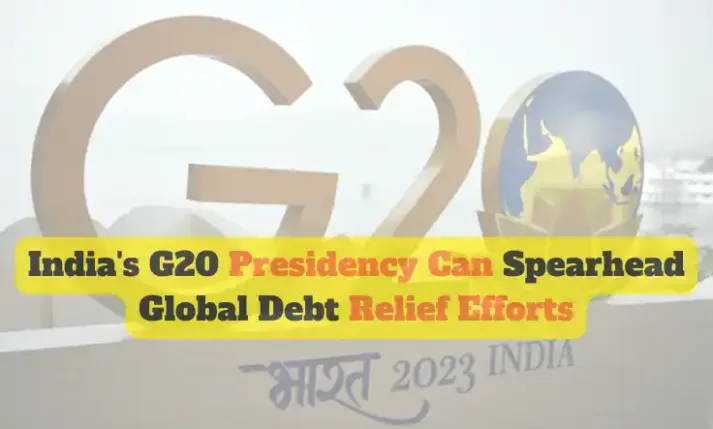As India assumes the presidency of the G20, it holds a crucial opportunity to address the escalating global debt distress and lead the world towards a sustainable economic recovery. Developing countries are grappling with mounting debt burdens, while the need to mobilize trillions of dollars annually to achieve the UN 2030 Sustainable Development Goals and Paris Climate pledges becomes increasingly urgent. Action is required as time is running out for both India's president and developing countries.
The US is also facing a debt crisis which can include a potential downgrade in the nation's credit rating, increased interest rates, and turmoil in financial markets. Germany is also facing a recession due to the impact of last year's energy price shock on consumer spending. Various other nations are also experiencing significant recessions and financial crises. Effective actions are required to deal with this.
Must Read: Will the US default on its debt?
According to Financial Express, the following three key actions can help tackle these challenges, and India has the chance to champion them during its G20 presidency.
Firstly, developing countries require increased liquidity through new allocations of Special Drawing Rights (SDR) at the International Monetary Fund (IMF) and the re-channelling of SDRs from wealthier nations to poorer ones.
Advanced economies should quickly pledge to re-channel at least $100 billion of their SDRs to developing countries. India must push G20 members to fulfil their commitments and deliver the promised $100 billion to those in need.
Secondly, India should spearhead reforms to the G20 Common Framework, addressing its existing flaws. The Framework now only allows access to certain countries that require debt relief, leaving out a number of developing countries. As the G20's president, India should work to involve all creditors and establish real repercussions for those who refuse to cooperate.
Furthermore, debt relief within the G20 should be linked to climate and development goals, as all G20 members have committed to the Sustainable Development Goals and the Paris Agreement. India must support reforms that allow all debt-distressed countries to enter the Framework, employing both incentives (such as Brady-bond-like guarantees on restructured debt) and penalties (such as lending into arrears and debt payment standstills) to encourage reluctant bondholders and Chinese commercial entities to negotiate.
Lastly, India should ensure that new bonds are tied to recipient countries' Climate Prosperity Plans, facilitating a green and inclusive recovery. India can create the groundwork for a resilient and ecologically conscientious future by focusing on sustainability and connecting financial aid to climate goals.
India can help the G20 regain its credibility and put the world economy on the road to recovery by tackling these issues head-on and supporting the V20 proposal. Robust action and a presentation of India's commitment to debt relief and sustainable development are required to pave the way for a better future for all countries as the world looks to India's G20 presidency for leadership.
—Kritika Singhal
Also, Read: Recession Looms for Germany's Economy as Energy Prices take toll







